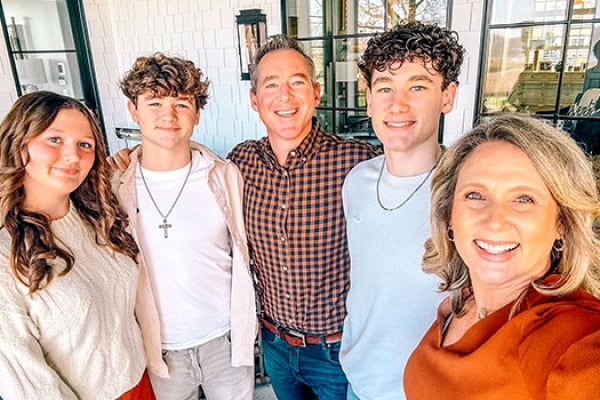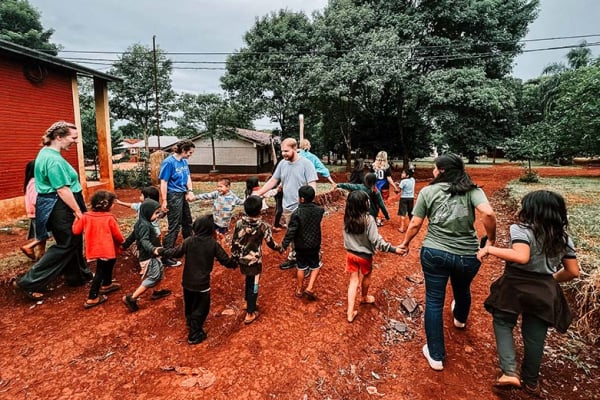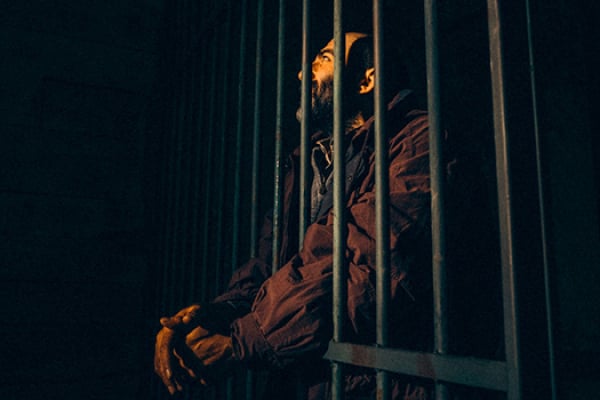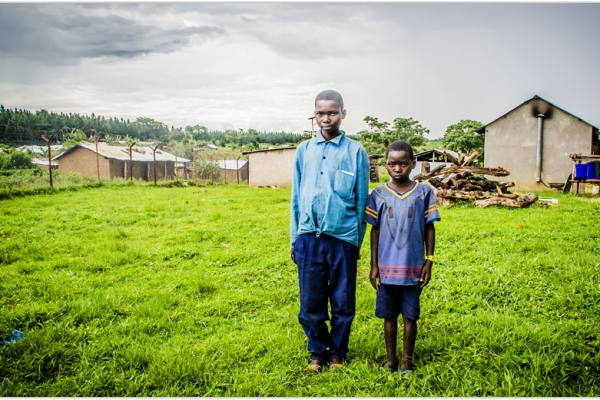
Just Like Me
JUNE 19, 2019 | 4 MINUTE READ | ALICIA SEARL
An interview with WGM Missionary Alicia Searl
Refugee (n.) a person who has been forced to leave their country in order to escape war, persecution, or natural disaster.
WGM missionary Alicia Searl knows this word far beyond its written definition. Alicia has been serving with Tutapona, a refugee NGO, for more than two and a half years in Uganda, Africa. She has seen first-hand the global issue of the ever-growing number of refugees and the extreme situations they deal with on a daily basis. As we recognize World Refugee Day—June 20, 2019—we ask you to join us in praying for refugees and those who work with refugees around the world.

Alicia, how did you begin working with refugees?
I began my work with refugees when I partnered with a local NGO called Tutapona in February 2017. I had been praying for God to use my experience and background in mental health to make a difference in Uganda. During my first week in country, I began to learn more about Tutapona, which means “we will be healed” in Swahili. The organization has been working with victims of war and conflict since 2010 and has had over 40,000 people complete their program.
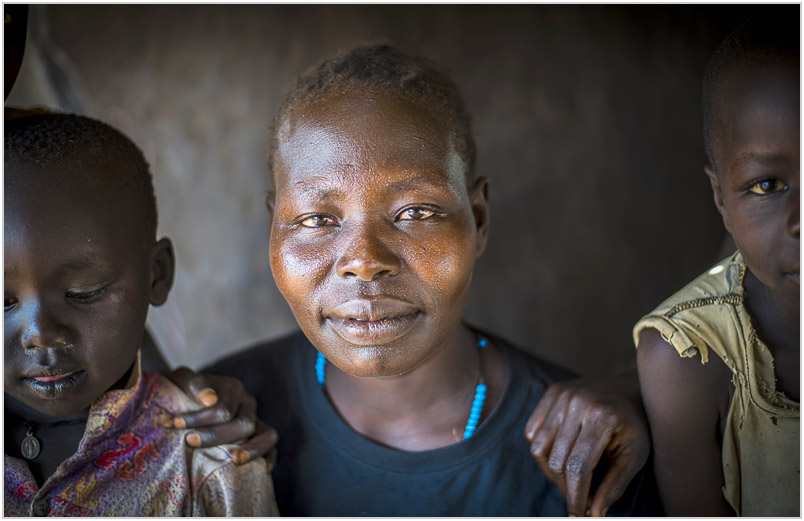
What does your work entail?
I have two main roles with Tutapona: training and staff support. I prepare and create training materials to equip the local staff to provide quality mental health services. I travel to northern and the southwest regions of Uganda and present on a range of topics from stress and trauma to self-care practices. My role of providing staff care includes checking in with staff monthly on their own mental health through one-on-one counseling sessions or phone calls. As you would imagine, being a trauma counselor takes a toll on our staff, so my role is to help encourage and equip them as best as possible. Since our staff has grown to 50 this past year, I am now overseeing another volunteer who helps to check in with our staff. I enjoy being able to travel and visit our staff in the refugee camps and meet many of the refugees who have regained a sense of hope with the help of the services we provide.
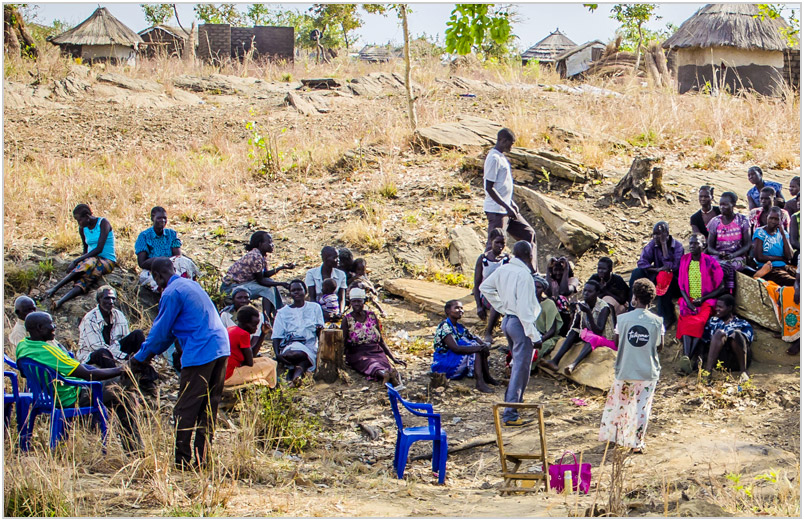
Tell us about the training you provide for others who work with refugees.
Training and equipping local counselors are a passion of mine. One of the main needs has been upskilling staff by providing advanced trainings. I have noticed that being able to equip local counselors is more effective than for me to provide direct counseling due to the barriers with language, culture, and physically looking different. The staff I train often are very eager to learn new ways to provide quality counseling and are engaged to become better at their work. Logistically speaking, I travel to both north and southwest Uganda to provide a two-day training four times a year. I have also been involved in training our new staff in basic counseling skills and trauma work. Another piece of training is watching the group therapeutic program and providing feedback to staff in improving the delivery and content.
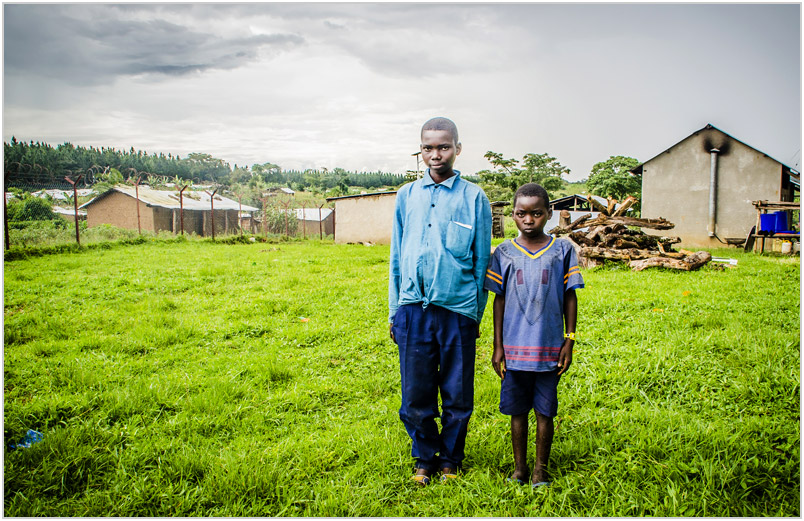
What is the most challenging part for you in working with refugees?
One of the most challenging parts of working with refugees is listening to some of the most traumatic stories. I had never come face-to-face with such hardships and pure evil acts. It can be difficult to let go of some of the stories I hear. I gain strength by focusing on the change that is happening again. I have seen people find redemption, forgiveness, and joy again amidst the heartache.
31 people are newly displaced every minute of every day.—UNHCR
What is something you wish everyone knew about refugees or working with refugees?
Refugees are just like us. They have many of the same desires and hopes for their families. They are mothers, fathers, and siblings. They may look different from us, but the reality is we are just one war, conflict, or disaster away from being a refugee ourselves. I have learned the power of being a good listener and treating each person with the respect we all desire. Asking about a person’s journey and story is a powerful way to connect and provide healing.
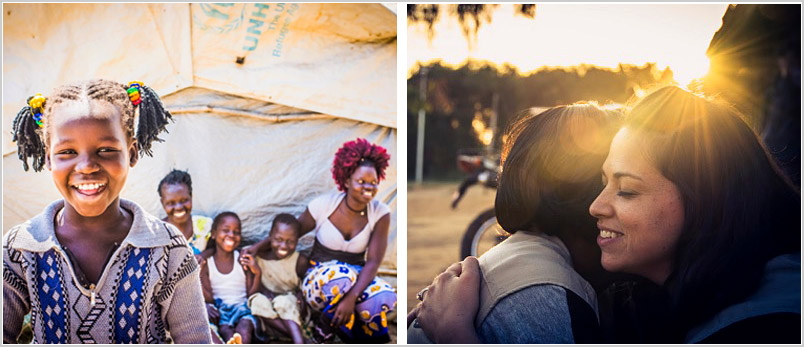
What would you tell someone who thinks this might be a ministry they want to explore?
Refugee work is challenging but very rewarding. It requires being partnered with a local organization who has clearance and permission to be in the refugee settlements. There are several organizations open to volunteers who have training and experience.
The refugee crisis is a global one. Together as the body of Christ, we can be a part of providing healing and peace, as well as the foundational understanding of Christ’s love for them in such a great time of need.
Stats about refugees
UNHCR reported 20.2 million refugees under UNHCR’s mandate, 3.2 million asylum-seekers (people waiting for refugee status approval), and 124,100 returned refugees.
In every session, we see individuals making personal commitment to growth and development; commitment that translates into action and results. That’s why we see over 50% reduction in trauma symptoms within a two-week program. That’s why we see families restored and homes rebuilt. That’s why hope and long-term sustainability abounds.—Tutapona.com
Just over 1 million individual asylum applications were registered in 156 countries or territories during the first half of 2018—UNHCR 2018 Mid-year Report
How you can be part of ministering to refugees:
- PRAY. Pray for strength and peace for those going through monumental transitions away from their homeland into a place that is foreign and unfamiliar. Also pray for healing from the deep wounds many refugees have encountered.
- GET INVOLVED. Many communities throughout the United States have become home to refugees. Find a group or organization in your area that works with these people and ask how you can help. It may be by teaching English, acting as a host for refugee university students, or by simply spending time with them.
Author Bio: Alicia Searl lives with her husband, Brady, and their son in Uganda. You can follow their journey on Instagram.
Photo Credit: Candice Lassey and Helen Manson serve with Tutapona. You can see more of their work here.

